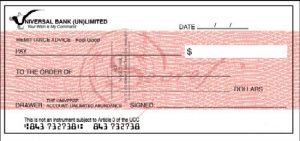Most articles concerning accountants offer advice on financial or tax issues. We’re not much different than the norm… until now. This time around we’re going to talk about what you should do for accountants… by not doing the 7 things we list below. Helping accountants help you; what a concept!
1. Never ask your accountant to lie for you
 |
A common occurrence is having someone show up in an accountant’s office in some kind of financial trouble and offering all sorts of money for them to lie to whomever they’re in trouble with. This is a twofold problem for both the accountant and you.
The first problem is that almost no accountants are going to lie for you. They take their business seriously, and don’t want to get in trouble for doing something illegal. Some of them might even turn you in for doing it, since no contract of confidentiality would have been signed.
The second problem is if you actually find an accountant who will lie for you, there’s no way you can trust them… and they might actually hurt you long term. It’s best not to even go down this road.
2. Never give your accountant false records about your business
Accountants are only as good as the information you give them or allow them to have access to. If you’re trying to hide income or doing something else unethical, and then handing them figures, it’s possible that the outcome you were expecting won’t come about, which then generates more interest in what your actual intentions are.
We’ve seen this type of thing happen. Something always stands out as making no sense, and when brought back to the client the only response received back is something along the lines of “I don’t know”. This type of thing never ends well for anyone; if you want to cook the books it’s best to do it on your own.
3. Never ask your accountant to take the fall for you
This one should be easy. If you’re rich enough to pay off an accountant to take the blame for you then you’d probably hire someone inside the business to handle your money for you. There’s almost no accounting firm that will accept blame they didn’t generate, and those that will are going to cost you a lot more than you could possibly pay.
4. Never blame your accountant for your bad financial behavior
Years ago, the entertainer Elton John sued his accounting firm for mismanaging money. During the trial, he admitted that they had told him his financial status and recommended he stop spending as fast as it did, but he kept on doing it. When asked why he blamed the accounting firm he said “they should have stopped me”. He ended up losing the case.
It’s understood that sometimes people have problems with their accountants, but if the issue is you, the client, then own up to it. There are times when only you can address your financial issues… even if you get advice from your accountants. This leads us to…
5. Never discount your accountant’s financial advice
If there’s one group who’s going to try to help you understand your money and finances, it’s your accountant. Unless they’re a brand new company, most of them have had thousands of clients they’ve probably offered advice to. What you’ll find is that even if the numbers differ, the problems and solutions are often the same. It’s good to listen to an unbiased point of view and accept as much of the advice as possible.
6. Never lead your accountant into believing you know what they’re talking about
There are a lot of areas where not knowing about something that affects you isn’t all that critical. If we’re talking cars and the only things you understand is how to drive or putting gas in the car, you’re going to be doing pretty well.
When it comes to your finances, if there’s something you don’t understand you should take the time to ask questions and learn as much as you can. Some of the concepts still might be difficult to grasp after the explanation but you can always ask again, or ask them to give you information in writing so you can take time later on to review it. You never do yourself favors if you just go along with something without understanding it. Think about how many stories you’ve read about celebrities who end up having tax difficulties with the IRS because they didn’t understand what was going on with their money.
7. Never lie to your accountant
In closing, we loop back to the first thing we talked about, this concept of lying and accountants. Fudging books is one thing; outright lying to an accountant is another. Although bound by confidentiality regulations, if they know you’ve lied to them they can recuse themselves from any problems you might come across where having them on your side could be helpful.
Lying to your accountant is like lying to yourself. The worst thing that can happen in telling your accountant something that’s bothering you is they might stop representing you. Why lie? Just go to someone else you feel you might trust more.